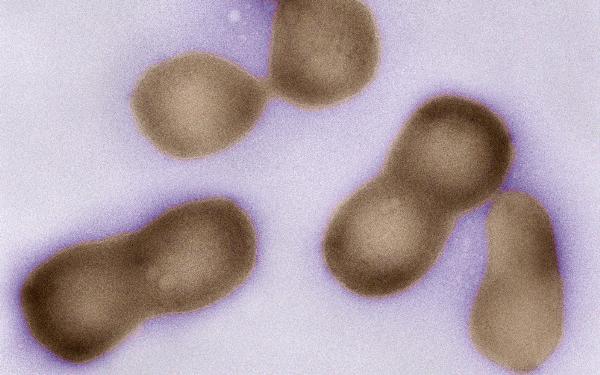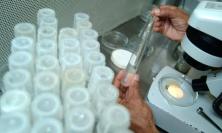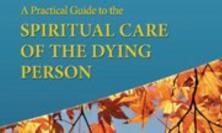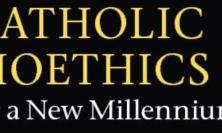While scientists make headlines about recent advances in synthetic biology, the General Assembly of the Presbyterian Church of Scotland will today consider a report on this novel area of research. Dr Murdo Macdonald considers the ethical and theological questions raised by the development of ‘artificial life’: are scientists really ‘playing God’?
The media has been full over the last few days with headlines about ‘Dr God’ and how ‘artificial lab life could potentially wipe out the world’. What Dr Craig Venter and his colleagues at the eponymous Venter Institutes in California and Maryland have done is certainly very clever, but does it justify the hype?
In a report which has been two years in development, the Society, Religion and Technology (SRT) Project of the Church of Scotland concludes that, while there are potential benefits to be had from breakthroughs in this field, scientists are urged to carry out research in an appropriate ethical framework. It also calls for the Church to engage constructively with those seeking to utilise science and technology in a responsible manner.
The research which is generating all the interest is published this week in the online issue of the journal Science[1]. The research team chemically synthesized a bacterial genome (belonging to the bacterium Mycoplasma mycoides), and transplanted that into a closely related bacterium, Mycoplasma capricolum, to create an entity which they call a ‘synthetic cell’ – despite the fact that only its genome is synthetic. The new genome ‘booted up’ the recipient cells, which looked like normal M. mycoides bacteria and produced only M. mycoides proteins.
All undoubtedly very clever, and in itself representing quite a significant technical step. This is not, of course, the first example of ‘synthetic biology’ – a field of research which seeks to combine the principles of biology and engineering, and of which Dr Venter has long been a vocal proponent. For some years, it has been believed by many observers that this area of research has the potential to create in the 21st century a technological revolution as great as, or even greater than that generated by synthetic chemistry in the 19th century, when chemists learned how to synthesise compounds that had previously only existed in nature.
The prospects held out for this field are immense. Even taking some of the publicity with a pinch of salt, the possibility of generating novel drugs, producing better and cleaner forms of fuel, and the remediation of environmental pollution such as that currently being wreaked on the Gulf of Mexico by the ruptured BP oil well, is indeed seductive. The authors of the Church of Scotland report acknowledge this, observing that such manipulation of micro-organisms in the ways envisaged by synthetic biology has ‘the potential to revolutionise much of our lives’.
Synthetic biology is concerned with artificial living organisms or life. Life is a difficult concept, especially as we tend to think in terms of human or sentient life. However, in the present applications of synthetic biology, life is considered in biochemical terms and is mostly concerned with some of the simplest forms of known life, such as bacteria and viruses. It is important to grasp that all life forms are composed of molecules (e.g. proteins, sugars, DNA, RNA, lipids), which are in themselves non-living. These molecules are sometimes referred to in synthetic biology as ‘bioparts’. The biochemical definition of life is that of such bioparts assembled within a physical container (i.e. the bacterial cell wall) which are able to continually regenerate, replicate and evolve.
Synthetic biology brings together the disciplines of biology and engineering and is essentially about the redesigning and reassembly of biological systems. The biologist wants to understand living systems better; the engineer wants to create new things. The biologist identifies the individual bioparts of the living organism; the engineer then standardises the bioparts. The analogy which is sometimes used is that of car manufacture, where the different bioparts are then fitted onto a common ‘chassis’ (usually a bacterium as previously described), where they perform the desired function.
However, despite some protestations to the contrary, the Church of Scotland report also argues that synthetic biology does not put humanity on a par with God and that our ‘creatureliness remains’. This field of research, which has been styled as ‘creating life’ and ‘Life, version 2.0’, does hold out much promise, but also brings many concerns.
Biosafety is a difficult area in synthetic biology, as components may be introduced which do not exist in nature. Artificially synthesized organisms could have unpredictable and potentially damaging effects when released into the environment either intentionally or accidentally. Although researchers are trying to come up with ‘safety locks’ which could prevent an environmental hazard, it is very difficult to predict the effect of these organisms on nature once they leave the protected environment of a science laboratory or test site. In addition, the build–up of novel biological elements in the food–chain is unpredictable and may have unexpected effects.
Synthetic biology holds out the promise of the creation of new drugs and therapeutics. However, the question of fair distribution of resources and the availability of new drugs and therapeutics to all people still remains. Furthermore, patenting synthetic biology developments could lead to an increased dependence of poor people and countries on rich countries and companies. For example, one of the oft-mentioned developments in synthetic biology is in the manufacture of the anti-malarial drug Artemisinin. This drug was originally derived from a plant native to China. Some have argued that the manufacture of such medicinal and other commercially important chemicals through synthetic biology deprives a poorer country of a potential source of income.
What is the right relationship between humanity and nature? Does God give us authority to unpick and reconstruct nature in the fundamental way which seems to be at the core of synthetic biology? While many focus on the call early in Scripture for humanity to ‘subdue’ creation, our relationship with our environment as Scripture unfolds is of course much richer and more complex than simply one of master and servant. The spiritual element must be held in concert with the more familiar emotional and physical aspects of a Christian's stewardship of Earth's resources. The spiritual, while perhaps less tangible, is always important to the people of God.
How far is ‘far enough’, and to what extent should our God-given ability to be creative be constrained by moral and ethical considerations? In seeking to speak prophetically, the Church must always be careful that it actually listens and understands before it speaks. If we wish to discern the will of God, then we surely have a responsibility to listen to and understand what God says to us.
One of the important issues raised by the field of synthetic biology is the reductive approach to life. In treating biological organisms as little more than sophisticated machines, synthetic biology seems to reinforce a reductive approach to life and challenges different world-views which do not agree with this particular understanding of life. If a synthetic bacterium or virus can now be produced in a scientific laboratory, does this mean that synthetic biology has proved that life is nothing more than a series of chemical reactions?
Reduction is the process by which an object, property, concept or theory is shown to be explicable in terms of another, lower level object, concept or theory. Such a method is very popular in science because it promotes conceptual and theoretical economy. Taking it beyond methodology, however, some scientists appear to believe that synthetic biology has unravelled the fundamental nature of life and proven the superiority of a kind of conceptual or ontological reductionism over other life-theories. Others in the scientific community have pointed out that ‘scientific definitions of life are working hypotheses – tools – used in the process of research that do not necessarily cover what counts as life from the everyday-life experience, or other perspectives.’[2]
Christian theology supports a completely different ontological theory which is based on the doctrine of creation, the Trinitarian doctrine and Christology. According to the Christian tradition, God created everything which exists ex nihilo, out of nothing. The ex nihilo creation affirms that God created everything out of divine sovereignty and freedom and not out of necessity. God did not create the world and then abandon it. The incarnation of Christ demonstrates that God remains in an intimate and loving relationship with creation. Creation is seen more like a project and less like a static work of art. The whole cosmos, being the work of God, was created good; nature followed humanity in the Fall but will also be redeemed at the end of time.
The Christian doctrine of creation offers a holistic understanding of the cosmos. Holism affirms the goodness of the created world and therefore gives a particular normative ethical meaning to all creation. Nature should not be abused, exploited or destroyed; on the contrary it should be approached with respect and love, and nurtured in stewardship. Boldt and Müller argue that if we start creating lower forms of life and thinking about them as ‘artefacts’ then there is the fear that in the long run we might lose respect for higher forms of life too.[3] Christian theology, by affirming the inherent goodness of creation, offers a normative reason for why life should always be respected.
Just as the Church would hold that wealth is more than money, religion more than ritual, and relationships more than sex, it views life as being more than simply the interactions of chemicals.
So are we ‘playing God’? In trying to create new life-forms, synthetic biology raises the question of whether humans have elevated themselves to the status of gods, in their ability to create. Some might argue that science has thus transgressed its proper boundaries and acts hubristically against nature and/or God.
According to Christian theology, the divine creation of life and its inherent goodness affirms its normative status. There is clear distinction between the created cosmos and the Creator God. God pre-existed everything; the cosmos is created by God, ex nihilo, out of nothing. God always existed and thus God pre-existed creation, whereas the cosmos came into being through divine action. God and the cosmos do not share the same substance (ousia). God is eternal, self-existent/uncreated, self-contained and self-sufficient. Creation, on the other hand, is temporal, created and dependent on God for its existence. This doctrine describes and underlines the origin and the nature of created beings, and sets the basis of the relationship between God and creation. It is not just a juristic or ethical form of relationship, but a more meaningful, causative relationship where finite existence derives directly from, and depends entirely upon, infinite existence.
Does synthetic biology challenge the distinction between Creator and creature? Has synthetic biology turned humans into a ‘Creator’ too? In order for this claim to be true, though, scientists must be able to create something out of nothing. However, even the most ‘synthetic’ elements of synthetic biology are made out of material which was previously in existence.
Furthermore, the concept of idolatry (of human capability) enters into the debate: we are not gods, and it would be a false premise to assume so. Producing new forms of life in the way described above does not constitute ex nihilo creation. Humanity has not managed to transcend the boundaries of creatureliness and become a ‘Creator’. Human beings are part of nature. Humanity’s creative nature is defined and underlined theologically by the doctrines of creation and redemption. The doctrine of Imago Dei (the image of God) gives a special status to humankind over the rest of the creation. Humanity’s unique position in the cosmos cannot be understood outside Christology. In order for creation to achieve its end, redemption is necessary. Humanity’s relationship with the rest of creation must not be confused with a wrongful domination and exploitation. Creation should not be perceived as sacred, as a given which needs to be kept untouched (pantheism). Rather, it needs to be viewed as a gift ‘to be cherished, perfected and returned.’[4]
Reverend Ian Galloway, convener of the Church of Scotland Church and Society Council, said: ‘Synthetic biology is an exciting area of research which raises many possibilities – but also raises some questions. Humans have a responsibility not only with regard to stewardship of the world around us but also the care and concern for other people.’
However, the report affirms that synthetic biology is a new scientific application which, if used correctly, could revolutionise medicine, transform the primary and secondary sector of industry and offer solutions to energy and environmental problems. If appropriate legislation and effective control could make sure that all potential risks were eliminated, or at least avoided, there is no compelling reason to stop or ban synthetic biology.
Everybody, Christians included, could welcome this scientific innovation. Eliminating human suffering, protecting the environment, promoting general well-being and advancing scientific knowledge using reason and human ingenuity are goals in harmony with Christian teaching.
Dr Murdo Macdonald is the Policy Officer of the Society, Religion and Technology (SRT) Project established by the Church of Scotland in May 1970. The SRT project seeks to help the church, in Scotland and beyond, to engage with the ethical issues raised by science and technology.
[1] Gibson, D.G. et al: Creation of a Bacterial Cell Controlled by a Chemically Synthesized Genome. http://www.sciencemag.org/cgi/content/abstract/science.1190719
[2] Boldt, J. and O. Müller: Newton of the leaves of grass, Nature Biotechnology, 26: 337-339 (2008)
[3] Ibid.
[4] Gunton, C.E., ‘The doctrine of Creation’. Continuum International Publishing Group - T & T C (2004)






